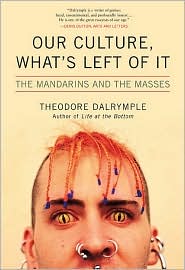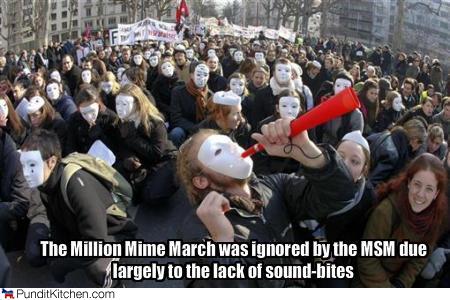Tim Watkin usually writes good sense, but with the latest post on gun control it’s clear he just doesn’t know his subject. Toughening gun control in NZ is basically a hiding to nothing, both in policy and in symbolic terms. It’s pointless for three main reasons:
- We already have pretty sane firearm laws and gun culture which regulate legitimate gun owners, and constrain the sorts of weapons most useful to criminals;
- As a country, we own a lot of guns, and they’re important to our way of life and identity, and this importance is the subject of bipartisan political consensus;
- We have very low rates of gun-related crime already, and any regulation which would be effective would be very costly, both in financial and political terms.
Just to preface this: I own a hunting rifle, and as a bit of a propaganda geek I’ve paid close attention to gun control as a matter of symbolic politics (alongside abortion, it’s a leading “touchstone” rhetorical issue in US domestic politics). I’ve been watching the way NZ is beginning to develop a (rather amateurish, but effective enough to not be laughable) US-modeled gun-ownership lobby with interest as well. But I’m not one of those “don’t tread on me” gun nuts who thinks bringing a loaded assault rifle to a town hall meeting is a core part of the democratic process. Owning a firearm is useful, but it’s not an absolute right — rather one which must be weighed against other consequences, including those which stem from arming communities. But I object to knee-jerk policy proposals which misoverestimate the problem, won’t solve it in any case, and will come at considerable cost.
What problem?
The most significant objection I have to Tim’s analysis is that he assumes gun crime is a serious enough problem to warrant harsh regulatory consideration; and seems to think that tackling it like the government has “tackled” knife crime is a sensible approach. I reckon both are suspect assumptions.
According to a UN survey from 2000 (the most recent I can easily access), 13% of our homicides (including attempts) were committed with a firearm, at an annual rate of 0.18 per hundred thousand population. That is a rate slightly higher than the UK (0.12 per hundred thousand, with much more strict firearm laws); just over half the rate of Australia (0.31, also with much more strict firearm laws, including a hugely expensive buyback programme undertaken in 1996 with the intention of solving the problem). I don’t think things have changed all that much; in 2009, the year of Jan Molenaar, the figure was 15% of our recorded murders (incl. attempts). You can use the Statistics NZ tools to get data here. You can also compare a bunch of countries’ rates here, but be sure to read the disclaimer. The bottom line is that we have extremely low gun crime rates by world standards, especially given that we have very high gun ownership rates. By far the highest proportion of gun-related deaths in NZ are suicides — I don’t have the numbers to hand but I recall it being above 70%. That’s a consideration, since suicides are usually committed with weapons of opportunity, and a firearm is particularly effective. But this is not the argument being made.
Knives are a much more serious problem, accounting for about twice as many homicides in NZ, and “other weapons” and “manual” which I assume includes unarmed homicides are also generally more common than firearm murders. The government has seen fit to “crack down” on knife crime by trying to prevent youths’ access to knives at the retail level using a voluntary code of practice. This is pure security theatre. Everyone credible knows it won’t make a blind bit of difference because kids don’t go and buy a knife from a shop, they just take one from the kitchen drawer or the toolbox in the garage. Firearms are already much more heavily regulated than this, and as a consequence people wanting one but who lack a license don’t roll into Hunting & Fishing and buy one — they get them illegally because we have no idea how many there are or who owns them (more on this later). So the comparison between guns and knives, while tempting, is bogus. Knife crime is much more serious than firearm crime, much less-heavily regulated, and the trivial additional regulation proposed won’t change anything — but it also won’t cost anything.
What guns?
Part of the reason gun crime is such a minor problem in NZ is due to our history and culture with guns, and in particular the fact that “personal defence” has never been a justification for firearm ownership. Tim also gets this wrong: citing “personal defence” as a reason for needing a firearms license will mean you get denied one, especially if you’re trying to apply for a restricted weapons license (which is the example he uses).
Excluding the post-settlement period, firearms in NZ have generally been conceptualised in law and culture as tools rather than weapons — for hunting, sport shooting, or the defence of the realm. Most in existence today are .22 calibre rabbit guns, or bolt-action ex-infantry rifles from the first and second world wars, passed down from father to son, or modern firearms based on near-identical designs, or shotguns designed for gamebird hunting. Partly due to length, partly due to action design and calibre, these are pretty useless for self-defence except for the appearance of threat and as clubs. By the same token, they are far from ideal for offensive use. Part of the reason criminals are rarely armed with firearms is because they are nearly impossible to conceal (which makes carrying or using them a riskier proposition than, say, a knife), and if sawn off below the regulation length of 30 inches, they are still not very convenient, and give police instant cause for book-throwing if discovered.
There are relatively few pistols or assault rifles in NZ, and those which are owned are very tightly controlled, with extremely high standards required of the owners. The NZ Police apparently operate a “sinking lid” policy on restricted weapons: to gain permission to import or produce one, you need to destroy another. This has driven the market price of such weapons through the roof, putting them out of the reach even of many legitimate collectors; although it must be said that the distinction between a “military-style” semi-auto and any other semi-auto is largely (not entirely) cosmetic, and one is no less deadly than the other. As the rather grim saying goes, the seven-round magazine restriction on an ordinary semi-auto centrefire rifle just means that if you want to kill more than eight people, you’ll need to reload.
Firearm licenses, especially those for restricted weapons like military-style semi-automatics and pistols, are issued at the discretion of an Arms Officer on the basis of the applicant being of “fit and proper” character. The threat of losing the license acts as a firm constraint on legitimate gun owners’ behaviour, with most hunters, collectors, etc. living in fear of having their license revoked. This constraint comes into force, for example, when deciding whether to keep a firearm for self-defence purposes in a country where most potential assailants, burglars, etc. are not themselves armed: if you happen to use it as such, you must then explain to your arms officer how come you had it handy, rather than locked up in its safe, with the bolt and ammunition separated. Most people comply to avoid this inconvenience, and because they know that the chances of a family member actually meeting a life-or-death situation are much higher with a loaded firearm lying around than otherwise.
In general (and again, I don’t have the figures to hand) the vast majority of gun crime in NZ is committed by people without a legal right to own or use a firearm in the first place (being not “fit and proper”). Jan Molenaar was just such a person, so using him as an exemplar of all that is wrong with the system is a bit misleading. It’s certainly an indictment on police procedure following the last shake-up of gun laws. Probably the biggest failure in our gun licensing regime is the lack of a registration system for specific firearms. It’s expensive, time-consuming and bureaucratic but would have been of some use had it been implemented when suggested by the Thorp report, even if just to draw a clear demarcation line between compliant and non-compliant owners. I think that horse has bolted now.
As for the matter of private internet sales of arms and ammunition — Tim clearly hasn’t used Trade Me for this purpose. It’s considerably more robust than any comparable method other than a brick-and-mortar shop (and many B&M shops use the same methods to sell nationwide). Anyone can view restricted auctions, but to bid or ask a question you need to enter your firearm license number. Repeated failure to do so (or entering made-up numbers) gets you blacklisted. If buying otherwise than by a face-to-face meeting, you are required to complete a form designated by the Police for this very purpose, and have it counter-signed by your local Arms Officer, who sights your license. The first step (needing to enter your number) prevents anyone without access to a license even bidding or making contact with a seller. This is probably the most effective safety mechanism in the system.
Sleeping Dogs
These are policy and cultural reasons which explain why trying to crack down on gun ownership in NZ is likely to be pointless. But Tim’s post was largely about the political aspects of the issue: the tension between the imperative to be Tough On Crime and the danger of getting tarred with the Nanny State brush. In symbolic terms, I reckon gun control is a loser for both of the major parties because, unlike the knife measure which is empty theatre, any meaningful changes to the gun ownership regime will come at a considerable costs. One important consideration with this is that in NZ (and Australia), unlike in the USA, gun control is seen as a matter of bipartisan consensus, with both National and Labour generally occupying the middle ground (and ACT and the Greens taking up the flanks). This means there’s little or no partisan advantage to be gained by either side.
The first of these costs is purely financial. A registration, licensing audit, inspection-reclassification or buyback scheme to remove firearms (or certain firearms) from circulation (or from the hands of those not “fit and proper”) is hugely expensive. The Australian Federal Government raised a special tax for the purpose and spent hundreds of millions of dollars on its buyback scheme, and even given the dramatic reduction in gun crime rates which resulted, it was generally seen to be wide-open for rorting. In New Zealand, with a much lower baseline level of gun crime, much less money and much more pressing law and order policy issues, this simply wouldn’t fly. Quite apart from the money, the drain on already-stretched police time would make a mockery of the government’s pledge to deliver resources to the front lines and away from the “bureaucrats”. And for all of that, it would still predominantly capture guns possessed by licensed owners: the “good guys” who, of all people, should retain their gun-owning privileges.
The second, and probably weightier cost is about the NZ identity. As I’ve argued before, wild places matter to us in identity terms. While most New Zealanders don’t own firearms, and never will, many more than the 250,000 who do like to think of themselves as potential outdoorsfolk who might go and shoot a possum and do their bit to save the rata. I don’t want to overstate this, though. Gun owners and hunters are viewed with considerable ambivalence by the general public, and with some cause. The gun lobby doesn’t do itself or the more reasonable branches of the sporting community any favours, and to a large extent they’re thought of in similar terms to Jan Molenaar and the various flavours of SHTF nutters.
But Nanny State also comes into this. Tim suggests that Labour couldn’t afford to do this for fear of strengthening the narrative established by the last term of the Clark government (I agree), but that National might just be able to get away with it. I disagree. Half of National’s support base are farmers or rural/semi-rural men of above-average income who are generally law-abiding and consider themselves responsible citizens in partnership with the authorities — of the view that the government “works for us”, rather than the view that the government is an agent of their oppression. (There are exceptions to this last, but mostly they vote for ACT and are thus irrelevant to this calculus.) This is almost exactly the same demographic which wants to be able to take care of his own rabbit problem and hunkers down in a cold maimai before dawn on the first weekend of winter for a laugh, and they greatly value the illusion that doing so is an inalienable right akin to that laid down by the Second Amendment. They tolerate (often with considerable reluctance) the existing licensing regime partly as a pragmatic solution to the social problem of crime, and partly because it accords them the status of being officially deemed “fit and proper”. But they will not tolerate further incursions on these privileges, and it is this demographic whom the gun lobby, with its US-imported “armed society is a polite society” rhetoric, is targeting using the present hysteria about violent crime as a springboard. These are the guys who already feel under threat from policies like the ETS, which prevents them from buying the V8, forcing them to settle for the V6.
This demographic might be the sort of people who could be persuaded to support tighter restrictions if there were a strong crime-reduction case to be made for it. But since there’s so little to gain, and since the existing regime is already at the margins of what is acceptable, National rouses these sleeping dogs and permits their radicalisation at its peril.
L



 But it is an empty threat. For one thing, you can’t play the bossy schoolmarm with schoolteachers and principals — they wrote the book on it, and know all the tricks of the game, having put up with them from students for their entire professional lives. Not to mention that, as career educators they have far more invested in the quality of their education system than a minister who’s only been in the job two years and could be gone in the next cabinet reshuffle.
But it is an empty threat. For one thing, you can’t play the bossy schoolmarm with schoolteachers and principals — they wrote the book on it, and know all the tricks of the game, having put up with them from students for their entire professional lives. Not to mention that, as career educators they have far more invested in the quality of their education system than a minister who’s only been in the job two years and could be gone in the next cabinet reshuffle. 
